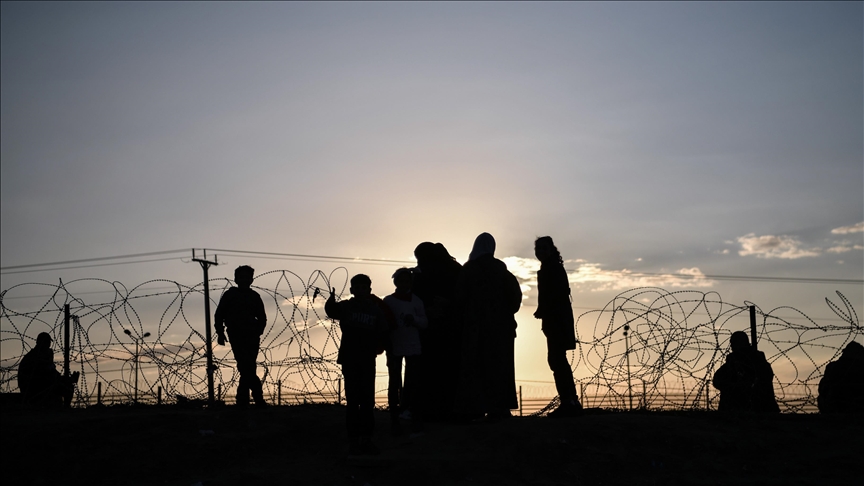UN 'extremely worried' about fate of civilians in Rafah
'We also do not want to see any forced displacement, forced mass displacement of people,' official says
 Palestinians who fled Israeli attacks and took refuge in Rafah, try to continue their daily lives under difficult conditions in the area near the border wall between Egypt and the Gaza, in Rafah, Gaza on January 29, 2024.
Palestinians who fled Israeli attacks and took refuge in Rafah, try to continue their daily lives under difficult conditions in the area near the border wall between Egypt and the Gaza, in Rafah, Gaza on January 29, 2024.
WASHINGTON
UN spokesman Stephane Dujarric on Friday voiced concern over Israeli premier's plan for civilian evacuation from Rafah in southern Gaza.
"We are extremely worried about the fate of civilians in Rafah," Dujarric told reporters in New York.
His remarks came after Israeli Prime Minister Benjamin Netanyahu ordered the Israeli Defense Forces to develop a dual plan to evacuate civilians from Rafah and to defeat the remaining Hamas battalions.
"What is clear is that people need to be protected, but we also do not want to see any forced displacement, forced mass displacement of people, which is by definition against their will," Dujarric said.
The UN would not support in any way forced displacement which goes against international law, he stressed.
"The unprecedented density of Rafah's population makes it nearly impossible to protect civilians in the event of ground attacks," the spokesman added.
According to UN Office for the Coordination of Humanitarian Affairs (OCHA), he said, the congestion in Rafah has reached a point where normal routes are blocked by tents set up by families seeking any flat, clean space available.
"In the last three months, the city has produced the equivalent of a year’s worth of garbage, according to municipal authorities.
"OCHA says the scarcity of food, clean water, health services and sanitation facilities have led to preventable diseases and deaths," he added.
Despite the International Court of Justice’s provisional ruling, Israel continues its onslaught on the Gaza Strip where at least 27,947 Palestinians have been killed, including 12,000 children and 8,190 women, and 67,459 injured since Oct. 7, according to Palestinian health authorities.
Israel has pounded the Gaza Strip since a cross-border attack by Hamas, which Tel Aviv says killed nearly 1,200 people.
The Israeli offensive has left 85% of Gaza’s population internally displaced amid acute shortages of food, clean water, and medicine, while 60% of the enclave’s infrastructure was damaged or destroyed, according to the UN.









